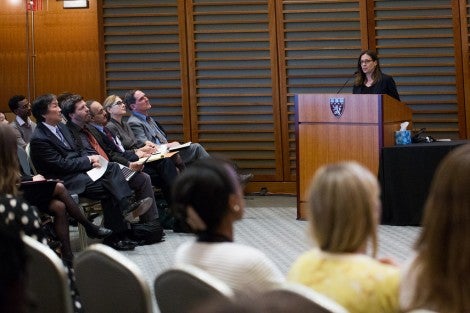Jocelyn E. Finlay is a Visiting Scientist at the Department of Global Health and Population.
Dr. Finlay’s research applies methods from economics and demographic study women's economic empowerment, reproductive health, fertility and women's labor force participation in low- and middle-income countries.
She has led a number of mixed-methods projects in sub-Saharan Africa to study how data collection and measurement of socioeconomic indicators can be gender sensitive, and how reproductive health and economic activity link to empowerment.
Her research redefines the measurement of women’s labor force participation, drawing on economic theory, current data comparisons and piloting newly developed survey modules.
In her research, she uses natural experiments to explore the long run, at-scale, impact of events (natural disasters, conflict, policy implementation) on gender roles and gender discrimination. She leads projects for development and evaluation of programs and policies for reproductive and economic empowerment.
Dr. Finlay is part of the National Academies of Sciences, Engineering, and Medicine's Committee on Population to organize a workshop on Family Planning, Women's Empowerment, and Societal Impacts. Dr. Finlay is co-chair of the IUSSP Population, Poverty and Inequality Scientific Panel, and organizes annual conferences. She is also part of the community of bilinguals in The GovLab’s 100 Questions Initiative to identify the top 10 questions on gender.
Dr. Finlay’s research has been published widely in top economics and public health journals. She works with knowledge facilitators at Population Reference Bureau, ShareNet International and AFIDEP for research to policy translation.
She received her Bachelors degree in Economics from the University of Melbourne and her PhD in Economics from the Australian National University. She has worked at the Chan School since 2006.
PhD, 07/2006, Economics
Australian National University, Canberra, Australia
BComm, 12/1999, Economics
University of Melbourne, Australia
BA, 12/1999, Arts (Japanese language major)
University of Melbourne, Australia
Honors, 12/2000, Economics
University of Melbourne, Australia
